6 Consumer Objections To Electric Cars - Answered
If you are one of those who’ve not been sufficiently attracted to an all-electric car, last month 7,762 other Americans thought differently.
That was the number of U.S. consumers who went all the way from thinking about it, to signing on the dotted line, to whirring away in a shiny new EV.
U.S. sales from January through July tally to 42,007. And, while market share has grown from just more than nil five years ago to 0.5 percent of today’s 17.5-million passenger vehicle market, there’s an even greater proportion of media buzz surrounding the quiet-running machines.
Unfortunately for EV advocates, not all of it is positive press with numerous reports alternately touting them or calling them into question on a variety of points.
Frankly, there have been some confusing and even outright incorrect statements made about EVs in a world where some may try to throw words like pasta on the wall, and see if they stick.
Following in brief, we’ll touch on a few common objections. Obviously the bottom line is every individual must still make choices best for his or her own interests, so that is the watchword going in. These pointers are just to get people started, and you can follow through with more research if you wish.
6 Consumer Objections To Electric Cars – Answered
1. Too Expensive?
The average new car price is $34,000 so unless you are talking upscale EVs, most are within the realm of this, subsidy eligible, and leasing is also a workaround in cases to make the prospect worthwhile.
True a car like an electric Nissan Leaf does carry a premium over a gas-powered Versa, so in terms of payback, you will want to calculate total cost of ownership factoring back-end costs including fuel/energy, incentives, insurance, maintenance, resale value, and more.
Anyone with solar energy is especially well served by an EV as that can be like “free” fuel.
The federal government otherwise offers a $7,500 tax credit, many states carry incentives for the purchase and charging equipment and dealers may be willing to discount on top of that. What that means is the net outlay can be like getting a car for a quarter to third off the sticker price.
Leasing deals also are very attractive in certain cases making today’s EVs a comparably good value depending on circumstances. As an alternative, while this article focuses on new EVs, clean off-lease examples are also a possibility to investigate.
2. Exchanging Gas For Batteries May Not Be Good?
An EV means giving up a gas engine and transmission with all the attendant scheduled maintenance and “things that can go wrong” and exchanging them for a battery, motor(s), and software and control hardware.
Unlike laptops and smartphones, automotive batteries are designed to meet expectations consumers have for “the second-most expensive purchase” they will make – and ideally go well beyond that. All EVs have at least an 8-year coverage, with mileage from 100,000 to “infinite” in Tesla’s case.
True, short of failing, batteries do lose an incremental amount of charge-holding capacity thus range over time, but – as part of the trade-off with internal combustion – electric powertrains eliminate maintenance one will have to pay for with a conventional gas or diesel vehicle.
Other things like brake maintenance is also reduced because regenerative braking spares the friction pads from doing all the work, so all else being equal, they last longer.
3. Not Really Green?
We’ve seen the reports: An EV’s effective tailpipe is really just the nasty power station in someone else’s neighborhood, possibly even a coal-fired one. Batteries are toxic and rare earth materials are also problematic. These and other factors can make the green argument look like a mandated boondoggle, and really pretty dire.
And, if one takes those statements at face value, it would be dire, but cradle to grave analyses by several unaffiliated peer-reviewed sources have come down unanimously on the side of the battery electric car. These assess: 1) the manufacturing process, 2) a car’s life in the hands of the consumer, 3) and what happens to it post-consumer.
The short answer is accepted science in the U.S. sides with EVs as impacting the environment less overall. The regulators know this, and that is why they are favoring EVs as cleaner and greener.
So what do you say to the skeptics? Those powerplants are also regulated, and they are being made cleaner year by year. Batteries get recycled as they have post-consumer value, manufacturers are developing motors with less or no rare earth materials, and production plants are improving with less waste and more environmentally sound practices.
Of course internal combustion powered cars are also cleaning their emissions and improving mpg, but they do not have near the upside potential of EVs which may also be powered by true zero-emission renewable energy.
4. Range is Not Enough?
What’s wrong with 200-300 miles range? Oh, you’re not considering a Tesla and only might have 80-100 miles to work with?
If you need a cross-country tourer, this is probably a deal breaker, but for commuting most people should have no worries. Around 80 percent of drivers need under 40 miles daily and a car with more than twice that should not be nerve-wracking.
A couple mental adjustments can even restore peace of mind with 100 miles or less of range. Think back to the days when gas-powered cars got 10-14 mpg. A 14-gallon tank might have meant as little as 140 miles until one sputtered to a stop – and practically, they would refill in less than that just to be safe.
Today assuming one charges an EV at home, apps in car or your mobile device add security by telling where to find local charging. Also charging at one’s destination, if possible, adds to the potential for “intra-day” charging.
Drives of as long as twice the rated range have been done in a single day and in any case, getting familiar with the vehicle’s limitations and local charging can make for a comfort zone on par with what people have lived with before.
5. Nowhere To Charge?
Those living in cities with unreliable on-street parking or apartments where charging is not available, or other prohibitive situations may have a point.
While some have been willing to drive somewhere to charge, that is sketchy and maybe a plug-in hybrid or regular hybrid would be more practical.
For certain cases, where reliable charging such as at work or school is available and not far away, a plug-in extended-range EV like the Chevy Volt may be the car with the best of both worlds. This is because it has the longest 53-mile all-electric range among long-range gas-electric cars, though a BMW i3 REx or a blended PHEV are also potential alternatives.
The Volt will run on gas as a regular hybrid, and if it’s not recharged, it won’t affect its operation or performance. If off-site charging is securely available so that you can bank on that, this may be an option. Or, as stated, a regular hybrid will also do.
6. Let Someone Else Go First?
Some people have waited on the sidelines to see whether electric cars pan out. Others are holding out for improved next-generation cars, not unlike how people did with flatscreen TVs.
Counting Tesla’s Roadster, and excluding the recalled late 90s GM EV1, li-ion powered EVs have been on American roads since 2008, and the major manufacturers turned the EV spigot on in 2010. The technology did not wither and die even with gas becoming unexpectedly cheap in America, almost all manufacturers are now on board with developing EVs and even new manufacturers are coming into existence just for this purpose. The EV market is at this point much better established than it was just half a decade ago.
We currently track 13-and-counting battery-electric models for sale in the U.S., there are other EVs in global markets also proving themselves, but true enough improved 200-mile range EVs with under $40,000 MSRP is pending.
First up will be the Chevy Bolt which will further answer some of the objections above, as will those expected to follow like the Tesla Model 3 and next-generation Nissan Leaf.
For those needing a car now or otherwise wanting to wait on those too, a lease could let you capture the benefit without concerns associated with ownership.
Become an AutoGuide insider. Get the latest from the automotive world first by subscribing to our newsletter here.
More by Larry E. Hall



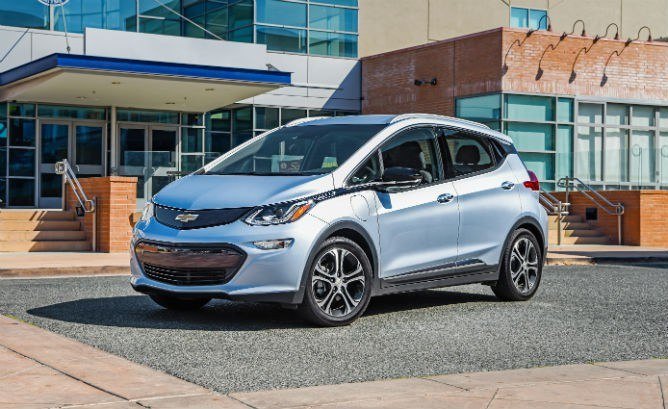



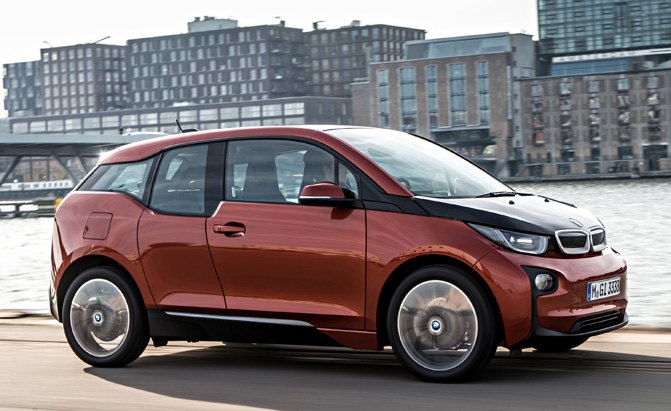












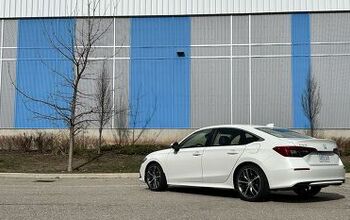

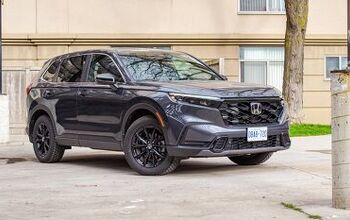



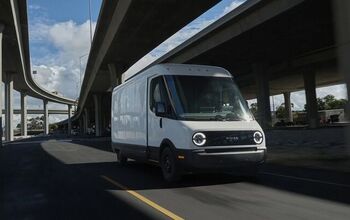

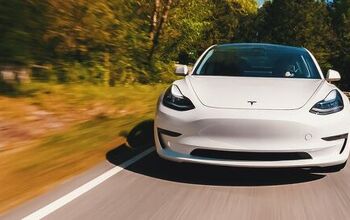



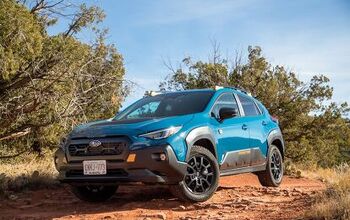

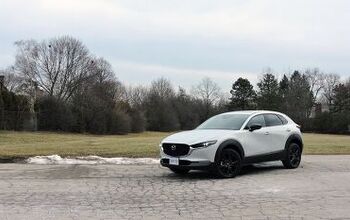
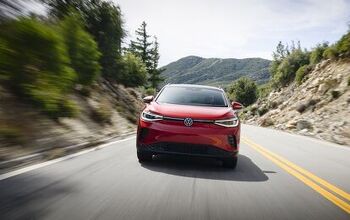

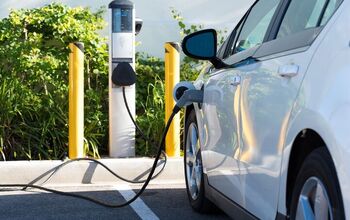
Comments
Join the conversation